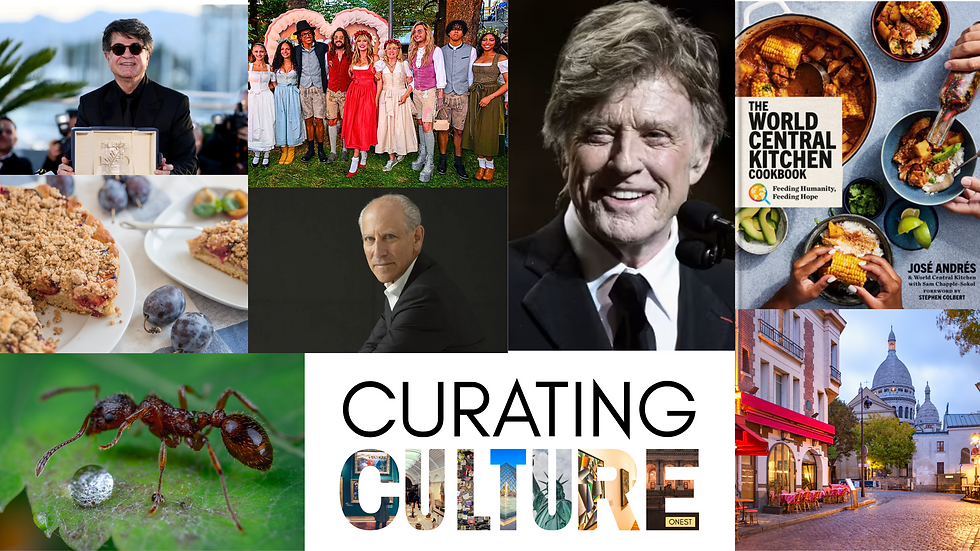Prime Minister Carney Calls for Ceasefire in Gaza, Highlights Canada’s Strengths at Council on Foreign Relations
- Olga Nesterova

- Sep 22, 2025
- 3 min read

New York, September 22, 2025 — Canadian Prime Minister Mark Carney capped off a high-level diplomatic weekend at the United Nations by meeting Secretary-General António Guterres on Sunday, where both leaders called for an “immediate ceasefire in Gaza, the release of all hostages, and the rapid scale-up of humanitarian relief.” The meeting came the same day Canada formally recognized the State of Palestine and reaffirmed its longstanding support for a two-state solution.
According to Canadian officials, Carney and Guterres also discussed “the importance of supporting a just and durable peace in Ukraine” and stressed the need for a strengthened multilateral approach to stabilize Haiti.
On Monday, Carney spoke separately with Turkish President Recep Tayyip Erdoğan and Kenyan President William Ruto.
Address to the Council on Foreign Relations
Carney’s diplomatic outreach coincided with his remarks at the Council on Foreign Relations (CFR) in New York, where he addressed an audience of foreign policy experts, diplomats, and business leaders. Both Canada’s current and incoming ambassadors to the United States were in attendance.
Carney opened on a reflective note, describing the geopolitical environment as “the end of the old system and the beginning of something new—based less on democratic values.” With a wry smile, he asked the audience: “Can we get the old system back?”
He warned that the U.S. economic system has become increasingly transactional, “solely trade and profit-based,” but argued Canada could still thrive in this shifting landscape.
Canada’s Value Proposition
“My request is think about Canada—that’s first,” Carney said. “We are a democratic country, we have what is needed, we are a reliable partner. We no longer rely on the strength of our values, but the value of our strengths.”
He listed three strategic advantages:
Canada is one of the world’s largest exporters of liquefied natural gas (LNG).
It ranks in the top five for global reserves of critical minerals.
It is a leading developer of artificial intelligence.
Carney also joked that recent U.S. visa restrictions might turn out to be “to Canada’s advantage.”
Defense Spending and Dual Use Capabilities
Carney emphasized that Canada is catching up on defense spending, pledging to reach NATO’s 2% target this year and increase to 5% by 2030. Of that, 3.5% would go to defense and 1.5% toward “dual use” technologies like AI, quantum computing, and other capabilities with both civilian and military applications.
“Canada needed the rupture to become all that we are capable of,” he said, adding: “Our response to this is to build strength at home and defend our values.”
Foreign Policy Priorities
On the Middle East, Carney reiterated Canada’s recognition of Palestine and commitment to a two-state solution: “It’s consistent with our policy since 1947. Waiting until all conditions are met—with the current Israeli government’s policy being there should be no Palestinian state—would be a waste of time.”
He acknowledged the complexity of ongoing U.S. efforts in the region, saying: “The situation is horrific and fluid, with multiple efforts including by the U.S. to find a path to security and peace. We have different perspectives but a common goal. We support U.S. leadership.”
On Ukraine, Carney noted: “We are the largest contributor to Ukraine per capita.” He welcomed U.S. President Donald Trump’s recent attempts to achieve “lasting peace,” while stressing Canada’s alignment with transatlantic partners.
Carney also pointed to Canada’s recent trade and security achievements, including a comprehensive EU agreement, progress toward full membership in the SAFE security program, and strengthened trilateral coordination within the USMCA.
Sanctions and Relations with Russia, China
Carney described secondary sanctions on Russia as a powerful tool, comparing their potential impact to measures once applied against Iran. “These sanctions can be incredibly powerful. It’s a possibility, and our view is that we should go quickly to that as this is the biggest non-military disincentive.”
On China, Carney argued for more clarity on the limits of engagement: “There are levels of engagement based on values. In aspects of energy and manufacturing—where there are guardrails pursuant to national security—that’s where we can be better.”
He also emphasized Beijing’s seriousness on climate policy: “China is sincerely engaged on climate—the country is run by engineers. The equation is how to engage and pursue progress. There’s a standing offer from them.”
Domestic Competitiveness and Talent
When asked about Canada’s challenges retaining skilled workers, Carney conceded: “The sheer weight of opportunity in the U.S.—50% of graduates are going to the U.S. tech sector. The ability to scale in Canada has been limited. A lot will change with AI, crypto, and quantum.”
Carney framed Canada as both a steadfast ally and a country increasingly defined by its strategic strengths. He called for international partners to recalibrate their view of Canada in an era of geopolitical rupture: “We removed barriers to internal trade, we are doubling our defense spending by 2030. Our core capabilities—AI, quantum—all have dual use. Canada is ready.”



Comments